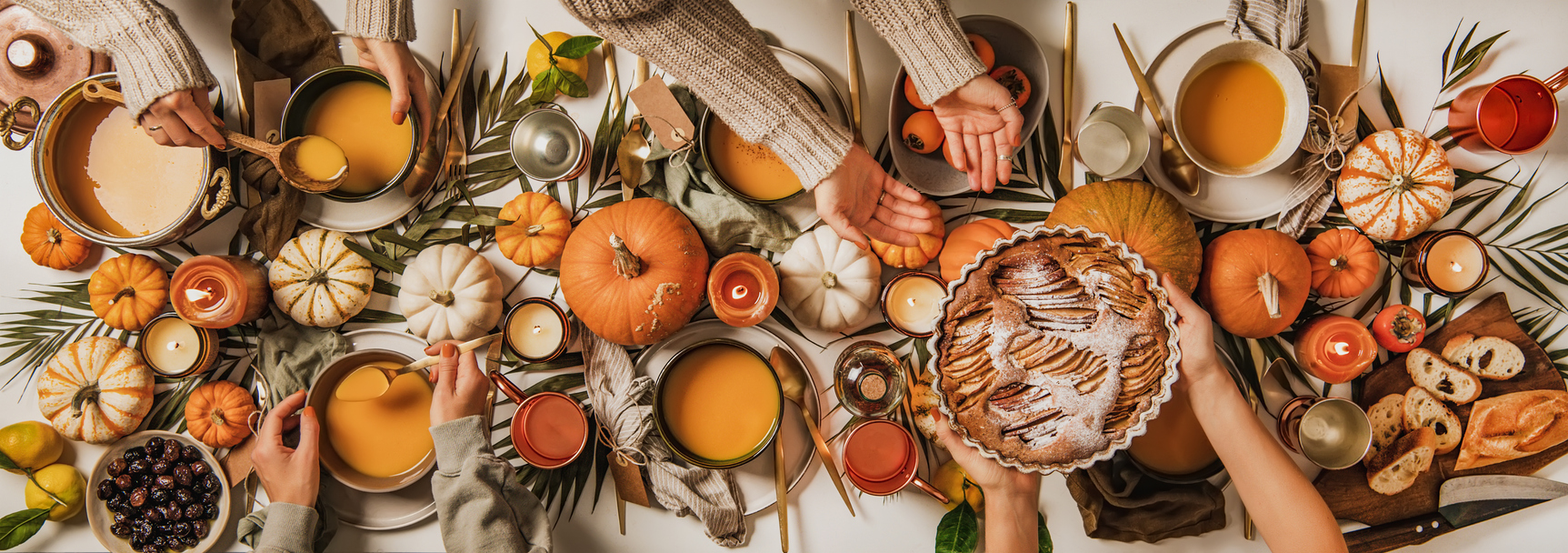Navigating Food & Body Image During The Holidays: Part I

Hello friends! This is Megan writing to you alongside Sam. A psychotherapist and registered dietitian, both with a specialty and passion in eating disorders. This blog is for all of our clients and any of you who might also struggle with disordered eating and poor body image, so often made worse by the holiday season.
It is easy to feel overwhelmed this time of year with the abundance of food, the diet culture commentary of our friends and family, and the pressure to conform to certain expectations. Whether you are navigating recovery from an eating disorder, working on your relationship with food, struggling with body image, or just plain nervous about the food and body talk that might come up with family and friends—we are here for you. And we would like to help you through the next month with a 3 part series blog.
Let’s start with Navigating Food & Body Talk:
Picture this- it’s Thanksgiving Day. You wake up and turn on the news to see a weight loss commercial. Your social media pages are filled with posts of friends and family engaging in exercise with captions about “earning Thanksgiving dinner”. You see posts of recipes for “healthier alternatives” to some of your favorite holiday foods. While with your family and friends, someone makes a comment that they haven’t eaten all day in order to “save up” for dinner. Someone else comments on how they are “so bad” for eating “too much” or having a slice of pie.
Giving yourself full permission to enjoy holiday food while feeling confident in your body? Not easy! In a society full of diet culture, unrealistic and narrow beauty standards and constant comparison, it feels like we are surrounded with messages that we are not good enough. And that is exactly how the diet industry wants us to feel. When we are insecure, we are motivated consumers.
Diet culture overwhelmingly emphasizes thinness as the gateway to health, happiness and worthiness, and these messages are not only from marketing sources. As in the example above, we may sometimes hear unhelpful remarks and judgements about food and bodies, even from people who are not intentionally trying to judge or upset us. It’s important to keep in mind that these comments often stem from their own insecurities. No one is immune to societal beliefs and values that are rooted in disordered eating and thinness ideals.
Here’s the good news—you don’t have to engage in or accept these remarks. Here are some ways you can take control:
Redirect the conversation to a more neutral topic: “Hey I just realized I haven’t seen you since your trip- how was it?”
Set a boundary by making it clear that you do not wish to engage in that topic: “You know what, I don’t feel like shaming myself over food- let’s talk about something else.”
Make a light joke: “Don’t we have more to catch up on beyond how our pants fit?!”
Walk away: If you can’t think of anything to say, don’t say anything! Removing yourself from the conversation and finding a more neutral discussion to join can take the pressure off.
Gently educate others if it feels right: “Feeling full is normal and okay- one meal simply does not impact your weight indefinitely.”
Practice responding with empathy rather than frustration: If someone makes a triggering comment, it can be frustrating, especially if you’ve previously set a boundary or feel they should know this would upset you. Try to remember that these beliefs are often rooted so deeply. This person may be on their own journey to self-acceptance and rejecting diet culture.
Please enjoy your Thanksgiving holiday. Take its message of peace and gratitude and turn it inward toward yourself. You deserve this time to rest, be with loved ones, and share in the human experience of sustenance.
We’ll be back with more guidance as we approach the new year!
Happy Holidays,
Megan & Sam


Comments are closed.